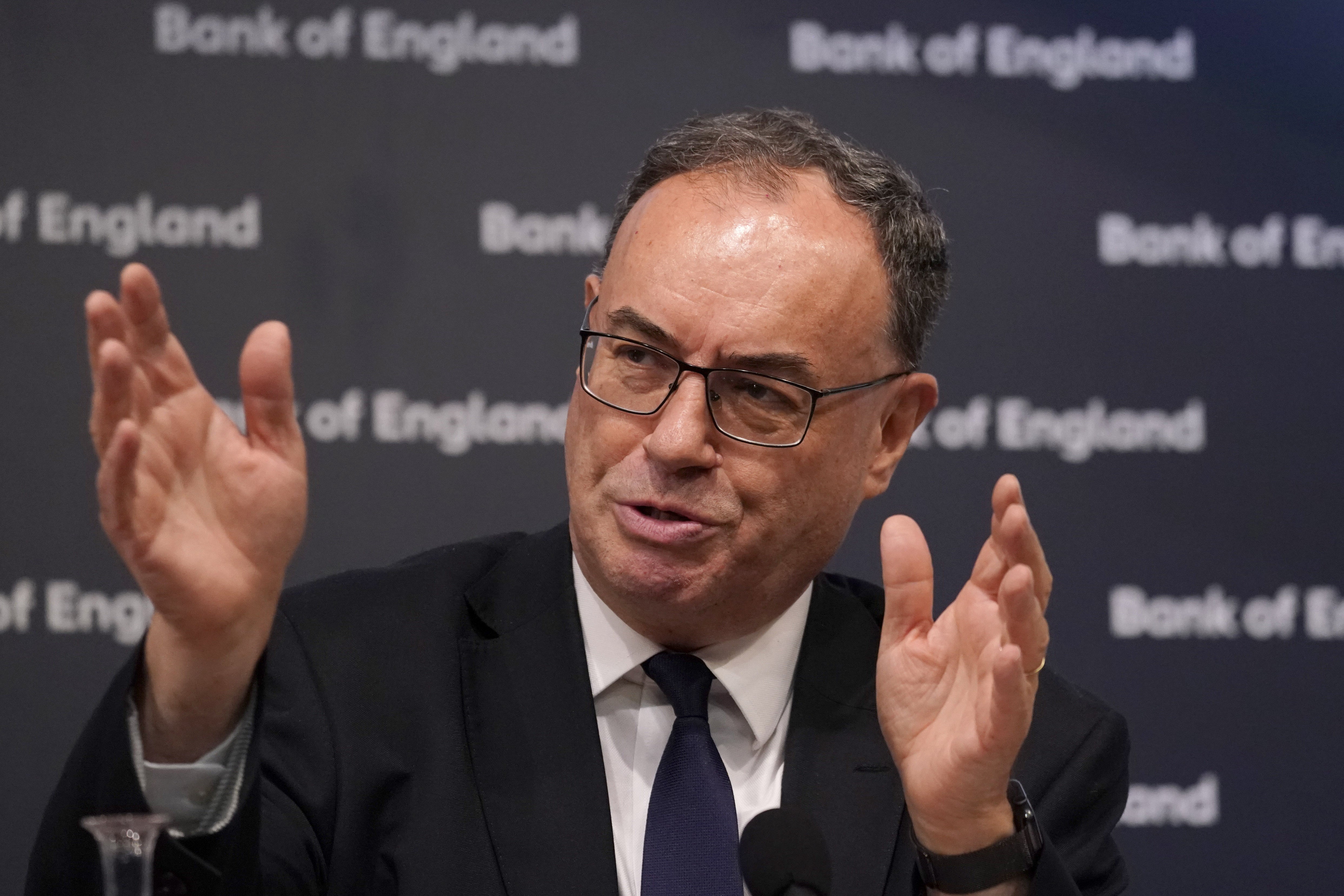Could the conflict in the Middle East have a knock-on effect on interest rates?
The governor of the Bank of England hinted at cuts to mortgage and savings rates despite world oil prices rising in response to the hostilities, writes John Rentoul


The pound fell sharply on Thursday after Andrew Bailey, the governor of the Bank of England, said in a newspaper interview that the Bank could become “a bit more aggressive” in cutting interest rates if inflation remains subdued.
He said “the economy has come through the shocks of the last five years better than many of us feared”, but warned that the Bank was watching the Middle East “extremely closely” to see what effect the conflict might have on the price of oil.
Oil prices have risen in recent days in response to the news of Israeli action against Hezbollah in Lebanon, and of Iran’s ballistic missile attack on northern Israel, but Bailey said: “My sense from all the conversations I have with counterparts in the region is that there is, for the moment, a strong commitment to keep the market stable.”
So will interest rates go down?
The Bank of England base rate is 5 per cent, having been cut on 1 August from 5.25 per cent, at which level it had been for a year. Homeowners with mortgages are keen to see the rate come down further, even if they recognise that the years of ultra-low interest rates, which lasted from the financial crisis in 2008 until the end of 2021, are now over.
Bailey said he was encouraged that the cost-of-living pressures had not been as persistent as the Bank thought they might be. Given that the control of inflation is the main reason for raising interest rates, this suggests that rates could be cut further before long.
Inflation is currently at 2.2 per cent, which is close enough to the Bank’s target of 2 per cent as to make no difference.
What might stop them?
All-out war in the Middle East wouldn’t help, and Alon Pinkas, a former adviser to Israeli prime ministers, warns in our pages of the risk that the conflict could spin out of control.
Even so, it shouldn’t affect the main oil-producing countries in the Gulf. Bailey’s comments suggest that he sees this week’s spike in oil prices as an emotional reaction to uncertainty akin to a rise in the price of gold, rather than indicating a fundamental change in the supply or demand for oil.
But if the oil price did rise, it would quickly cause inflation in the UK, which would discourage the Bank from cutting interest rates.
The other thing that might deter the Bank – or, more properly, its independent Monetary Policy Committee, which includes outside economists – would be an expansionary Budget.
Part of the significance of Bailey’s comments, therefore, is that he clearly does not expect Rachel Reeves, the chancellor and a former Bank of England employee, to increase public spending or borrowing dramatically.
When is the next interest-rate decision?
The Monetary Policy Committee meets on 7 November, eight days after the Budget. Bailey’s comments make a cut slightly more likely. The governor of the Bank of England knows that his every word in every interview will be subject to closer analysis than a text in a literary criticism seminar. The word “aggressive”, in particular, suggests early and bolder action, making a half-point cut rather than a quarter-point seem more likely.
It may be, too, that he wanted to offset the gloomy pre-Budget talk coming from the prime minister and the chancellor, with Keir Starmer talking of “painful” decisions and saying that he will not discuss what might be in the Budget because “I don’t want to put the fear of God into people”. Bailey may think that offering the prospect of lower interest rates will improve business confidence.
In the end, though, he is only one of nine members of the committee.





Join our commenting forum
Join thought-provoking conversations, follow other Independent readers and see their replies
Comments